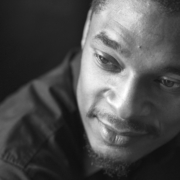Anti-Resolutions: What you’ll STOP doing this year
On January 3, from 6 to 8 pm, join Cathy Pickens for a FREE session to explore how you can make space and time for your creative work in 2019. Come celebrate the start of your creative new year! Space is limited, and pre-registration is required.
‘Tis the season for resolutions, to take stock of seasons past. Most of us dust off the old list: lose weight, make it to more of the kids’ ballgames. Or we just don’t bother, resolving to plug along as near-perfect as we are. New Year’s Resolutions have become passé, predictable, reliable only in reminding us of failures past.
This year, why not try some anti-resolutions—what you’ll stop doing this year?
- Stop ignoring what’s around you. Take real notice of the people and things that make your life run smoothly, more pleasantly. Take a deep breath when you walk out in the crisp air. Develop a child-like curiosity about even the most mundane. Write it down, to let yourself see what you’re thinking. Scribble on a legal pad or in the back of your DayTimer—nothing fancy needed. Creativity and “flow” expert Mihaly Csikszentmihalyi suggests noting one thing each day that surprises you, as a way to awaken your awareness and broaden your focus. Talk to yourself on paper about how to solve a problem. Ask yourself “what if …?” and “why?” You’ll be surprised how it helps you focus. Be mindful.
- Stop taking the easy path. Try something that scares you—or at least stretches you. According to the Second Law of Thermodynamics, an object at rest tends to stay there. Conversely, as Matthew Arnold observed, “Genius is mainly an affair of energy.” Accept a speaking engagement, hike up Crowder’s Mountain, take a ballroom dance or cooking or kayaking class for fun, or work on that (writing) project you’ve been promising you’ll start. Each new task requires initiative and risk-taking for the beginner but gets easier—once you’ve done it. Get moving, preferably along an uncharted path.
- Stop being one-sided. Learn the delicate art of balance. Aristotle urged us to seek the Golden Mean, emphasizing the importance of balance. Where are you out of balance? Develop where you feel weakest. Read something you wouldn’t ordinarily read. If your bedside books are all history or technical manuals, try some well-written fiction or a book you loved—or wished you’d read—when you were a kid. Try listening to a book on tape (the library will loan you one for free!). Visit the Mint Museums. Turn off the TV.
- Stop sitting in the same seat. Perception can be more powerful than reality. Practice sitting in someone else’s seat, seeing from her perspective, testing your own. Maybe you, literally, sit in someone else’s seat in a meeting, to break the routine. Look at an issue from your customer’s or co-worker’s or boss’s or sales clerk’s or child’s or spouse’s or mortal enemy’s place.
- Stop being inconsistent. What do you value? What’s important to you? Would someone know your values by what you say, by how you spend your time, by the decisions you make? In trying new things, make sure you’ve grounded yourself, that you know who you are. Take time to nurture your spiritual life. Philosopher William James said, “The art of being wise is knowing what to overlook.” That wisdom cannot be gained in the push and pull of your busy life. Be still. Turn off the car radio. Get off the treadmill and take a walk outside. Be alone with your thoughts. Recognize who you are and what you value.
- Stop being so serious. When was the last time you felt inspired or motivated by a humorless drudge? Does the fate of the free world actually rest on what you’re doing? Okay, maybe it does. But you can still lighten up.
Oh, yeah. Stop promising to get in shape and just get moving. Hit the gym or the sidewalk. Getting enough exercise is more important than your pant size. You’ll need the energy for all the things you’re going to stop doing this year.
Cathy Pickens’ first mystery, Southern Fried, won the coveted St. Martin’s Press Malice Domestic Award for Best Traditional Mystery. She’s written five books in the series, as well as Charleston Mysteries (History Press), an essay on historic crime cases in 27 Views of Charlotte, a regular column for Mystery Readers Journal, and articles on writing craft and on business. She served as national president of Sisters in Crime and on the national board for Mystery Writers of America. As a long-time professor in the McColl School of Business at Queens, she won numerous teaching awards.

